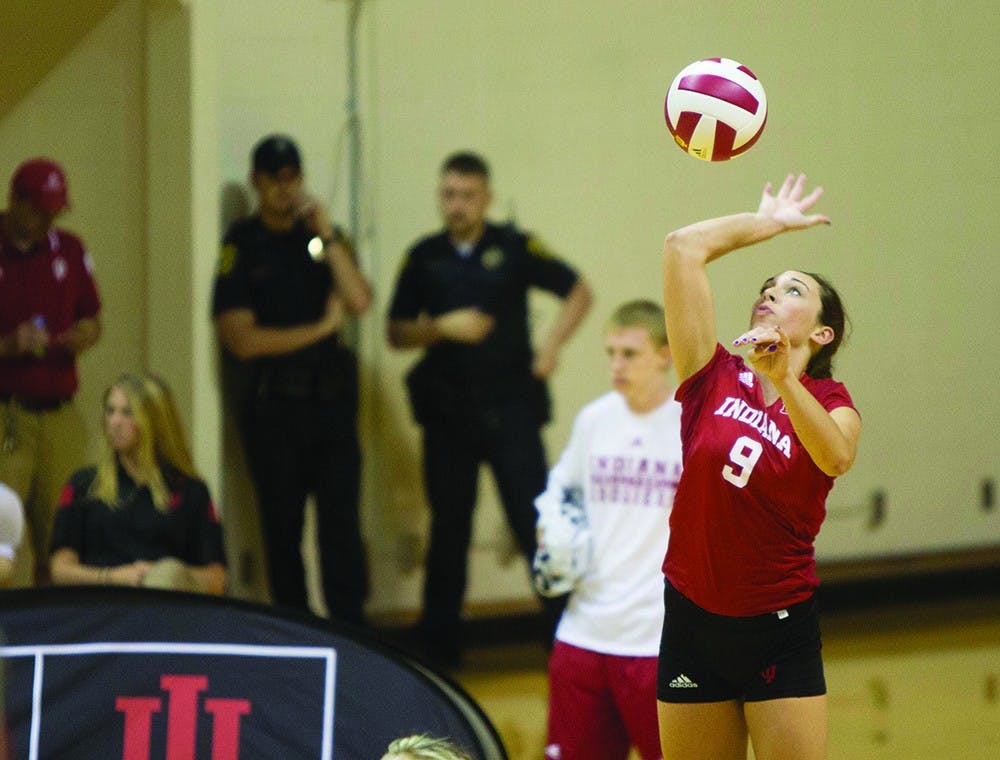But they didn’t pull off the win.
IU lost to the University of Illinois-Chicago (UIC), a team several IU players said they overlooked.
“We’re looking to bounce back from that,” sophomore outside hitter Taylor Lebo said. “We took them for granted. We’re not trying to overlook anyone anymore because we can’t afford to.”
IU (7-1) plays IUPUI (4-7) at 7 p.m. today in ?Indianapolis.
The IUPUI marketing team is billing the game as “Pack The House” night in an attempt to set an attendance record.
The most recent time IU and IUPUI played in volleyball, which was 10 years ago, the Jaguars fans set an attendance record then, too.
IU had a short week to try and regroup as it gets ready to play its first mid-week game of the season.
Dunbar-Kruzan and her coaching staff said they are trying to figure out how to translate practice success to match success.
She said the energy in practice leading up to Friday’s game against UIC was high and positive.
But IU lost the first two sets against UIC. It rallied to win the next two sets but fell short in the fifth set, losing its first game of the season.
Not only does this problem have to do with team maturity, but overall communication on the court, players have said throughout the season.
“We’re changing practice to make it more match-situation,” Dunbar-Kruzan said.
She said during a match, there is a lot of dead time.
In between points, the ball is brought back to the team who should be served, and that takes time.
There may be a call that is being disputed by the referees, and that takes time.
What teams do during that dead time, Dunbar-Kruzan said, is crucial to keeping energy and chemistry high.
“You have to fill that dead space with something, and we weren’t filling it with anything,” she said. “So we worked on that in practice.”
She stressed teammates making eye contact and talking more with each other. The coaches will feed them with information and ?strategies.
The whole point of keeping busy during dead time is to try and keep players engaged in the game so their energy doesn’t drop.
That energy in the dead time during a match is what Dunbar-Kruzan defines as team chemistry.
When you watch good teams, they are always chatting with each other during the dead time, she said.
To illustrate her point, she pointed to the University Gym court, which is one of the smallest in the Big Ten.
“This is a small court, and you have just six people on it,” she said.
“If you can’t connect with people on the court, it will look like six individuals playing. When we get into match play sometimes, that’s what it looks like.”




